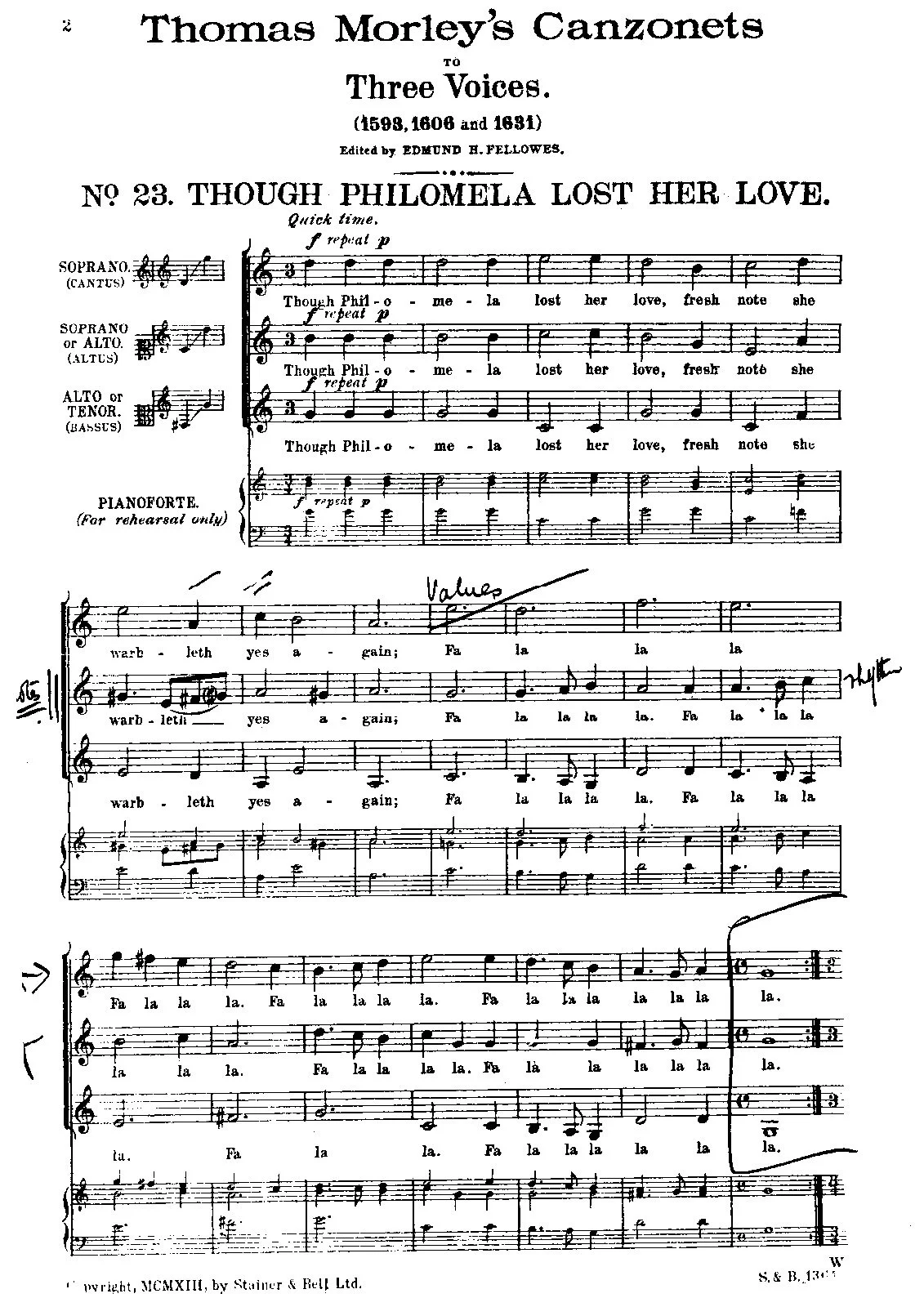Arachne/Philomela - story in brief
Arachne (and Minerva)
Arachne (from Ancient Greek: Ἀράχνη, romanized: Arákhnē, lit. 'spider', cognate with Latin araneus) was a mortal woman from the country of Lydia in Greek and Roman mythology. She was a great weaver who claimed to be better at weaving than either the Greek goddess Athena or the Roman Goddess Minerva depending on the version. The myth both provided an etiology of spiders' web-spinning abilities and was a cautionary tale about hubris.
The story is primarily known from Book Six of the Roman poet Ovid's catalogue of myths known as Metamorphoses.
Philomela
A horrific story from Greek mythology. Eliot's Notes point us to the story of Philomela as it is told in the Roman poet Ovid's Metamorphoses.Tereus, King of Thrace married Procne, daughter of the King of Athens. They had a child called Itys. Procne was lonely in Thrace, and asked her husband to arrange for her sister, Philomela, to visit. Tereus sailed to Athens to fetch Philomela, but on meeting her, was consumed by lust. He took Philomela back to Thrace and imprisoned her in a fort in the woods, where he raped her.Philomela's cries for help alarmed Tereus; so to silence her, he cut out her tongue. On his return home, he told Procne that Philomela had died on the journey.A year passed. Philomela, still imprisoned and unable to express in words what has happened to her, instead wove a tapestry of her story and sent it to her sister. When Procne viewed the images, she understood what had happened and went to rescue Philomela.The sisters plotted a shocking revenge. Procne killed the boy Itys, cooked his flesh and fed it to the unwitting Tereus. When Procne revealed the truth to her husband, he pursued the sisters with his sword drawn. At this point the Gods intervened, and transformed the three into birds. Procne became a swallow, Philomela a nightingale, and Tereus the sharp-beaked hoopoe.
As a school girl, I sang this song in a choir and remember it well. I sang the alto voice. So, when researching the story of Philomela, I took another look at the lyrics and was surprised to see how desensitised they were, considering the crime that had been bestowed on Philomela. I used some of the lines of this arrangement in my response to Julie Mehretu’s Notes on Painting, which I renamed to make my own as, Notes on (How to Make a) Painting.


